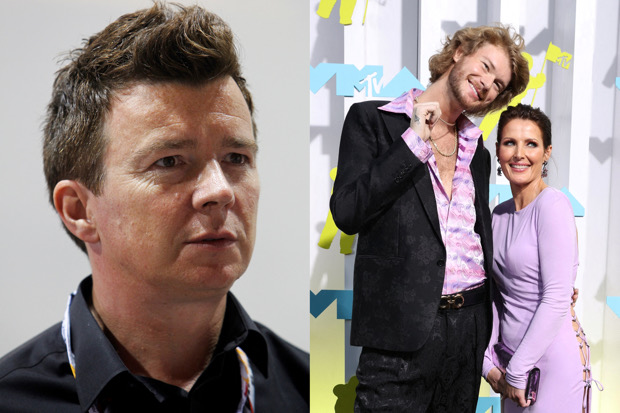Rick Astley sues rapper Yung Gravy over ‘Never Gonna Give You Up’ soundalike

Image: Reuters/Edgar Su, Caitlin Ochs
Rick Astley has sued the rapper Yung Gravy over a song that borrowed heavily from the British singer’s signature “Never Gonna Give You Up,” claiming that the new song illegally used an impersonator who imitated Astley’s distinctive baritone.
The complaint filed on Thursday, Jan. 26, in Los Angeles Superior Court said Yung Gravy’s 2022 song “Betty (Get Money)” violated Astley’s right of publicity by featuring the singer Popnick, who imitated Astley’s voice so well that listeners thought Astley was actually singing.
“In an effort to capitalize off of the immense popularity and goodwill of Mr. Astley, defendants… conspired to include a deliberate and nearly indistinguishable imitation of Mr. Astley’s voice,” the complaint said. “The public could not tell the difference.”
Astley’s lawsuit seeks “millions of dollars” in damages, as well as profits from “Betty.”
Among the defendants are Yung Gravy, whose real name is Matthew Hauri, and his record label, Universal Music Group’s Republic Records.
Universal and a representative for Yung Gravy did not immediately respond to requests for comment.
Astley, 56, reached No. 1 on the Billboard Hot 100 in 1988 with “Never Gonna Give You Up.” The song saw resurgent popularity about two decades later through the “Rickroll” internet meme, where it unexpectedly interrupts unrelated content.
Astley’s lawyer Richard Busch is known for representing Marvin Gaye’s family against Robin Thicke and Pharrell Williams over their alleged copying of the song “Got to Give It Up” for their “Blurred Lines.”
Thursday’s complaint said Astley’s claim resembled a 1988 case where Bette Midler successfully sued Ford Motor Co. for using a soundalike to sell vehicles, though Ford had licensed her song “Do You Want to Dance” for a commercial.
“Mr. Astley owns his voice,” Busch said in an email. “California law is clear… that nobody has the right to imitate or use it in a new sound recording without his permission, or pass it off as if he did approve the use.” AP/RA
RELATED STORIES:
The hottest entertainment news straight to your inbox
Read Next
Subscribe to INQUIRER PLUS to get access to The Philippine Daily Inquirer & other 70+ titles, share up to 5 gadgets, listen to the news, download as early as 4am & share articles on social media. Call 896 6000.
For feedback, complaints, or inquiries, contact us.
For all the latest Entertainment News Click Here
For the latest news and updates, follow us on Google News.



